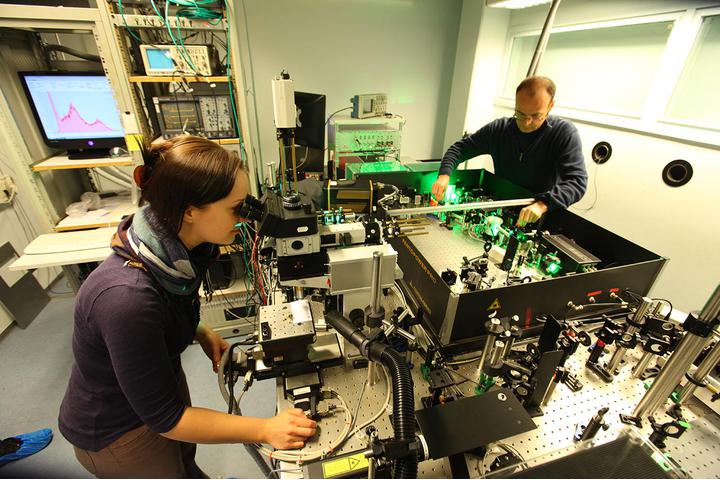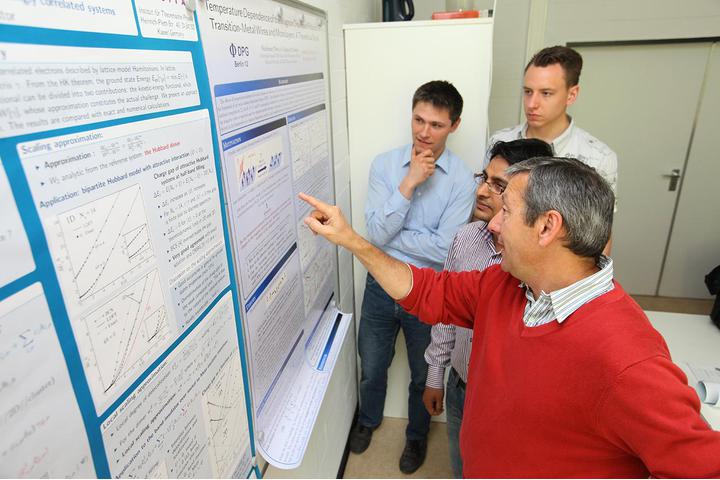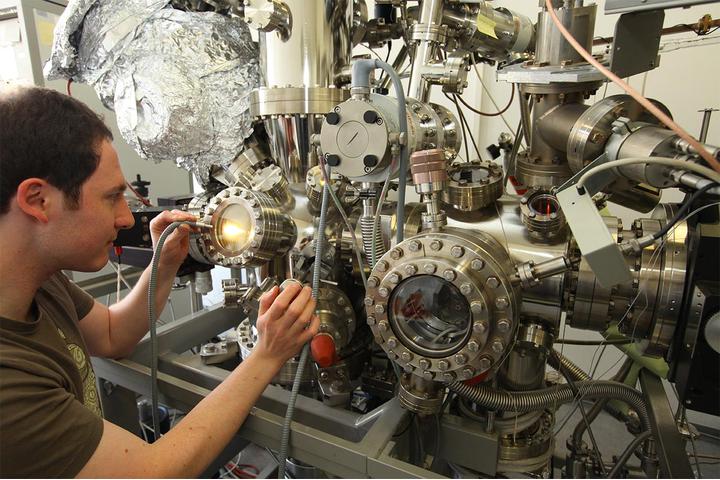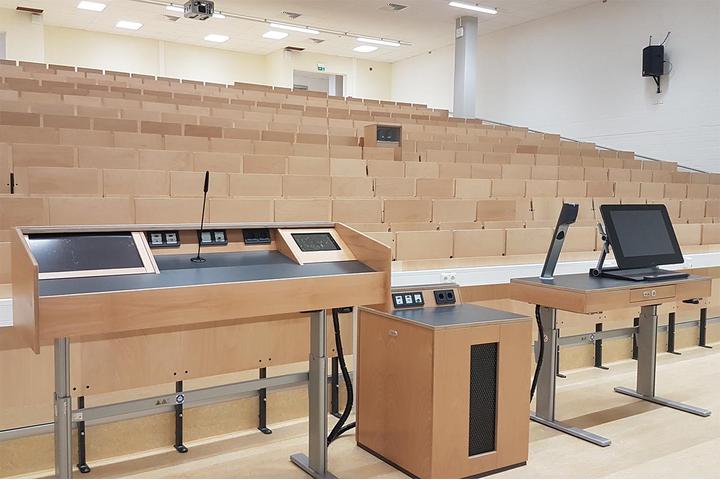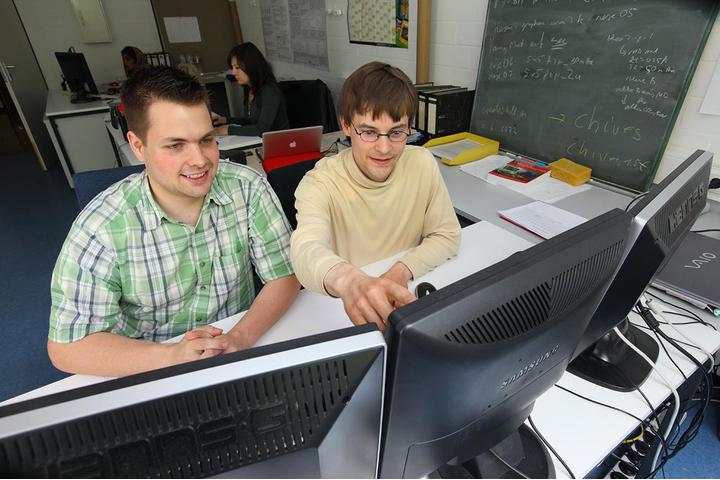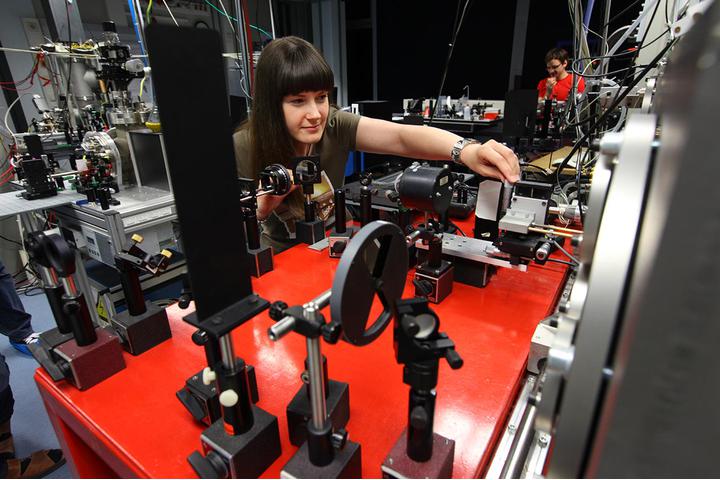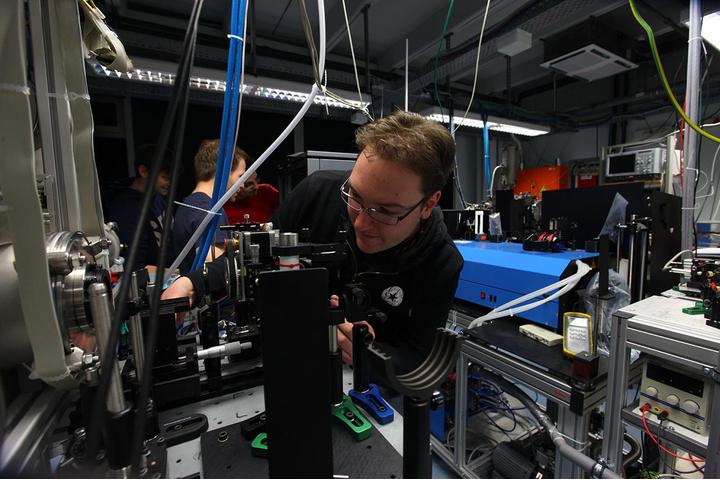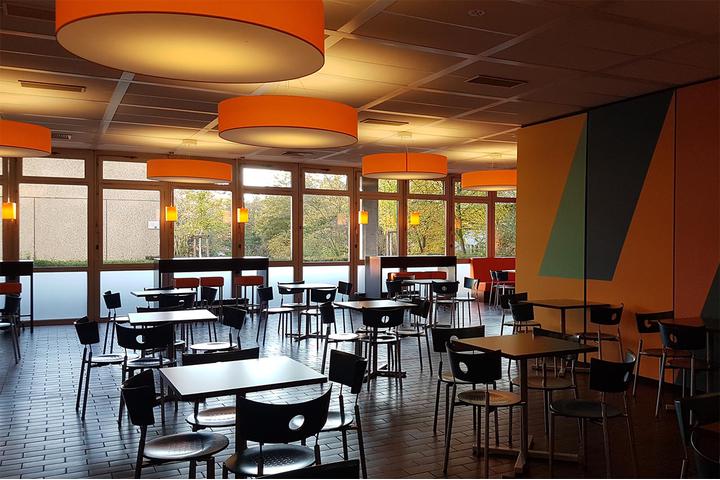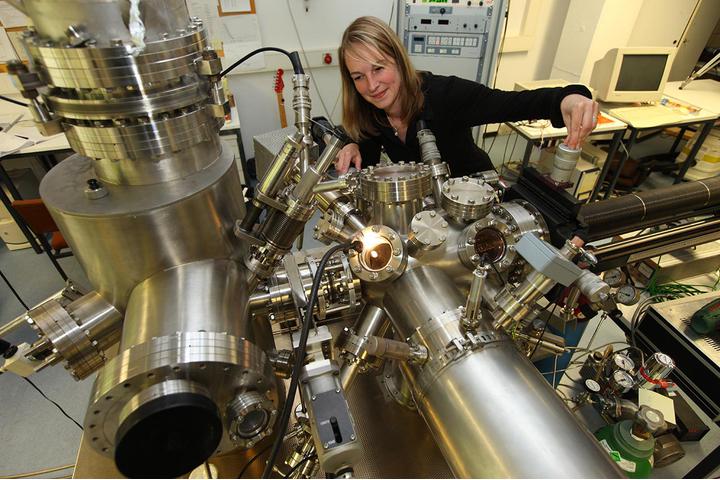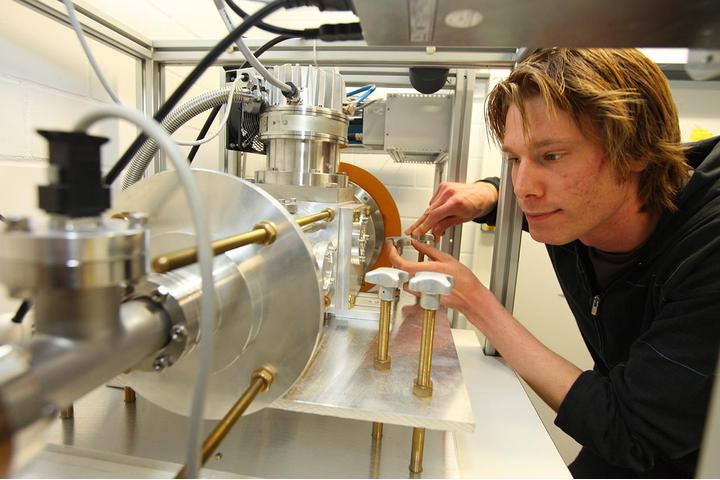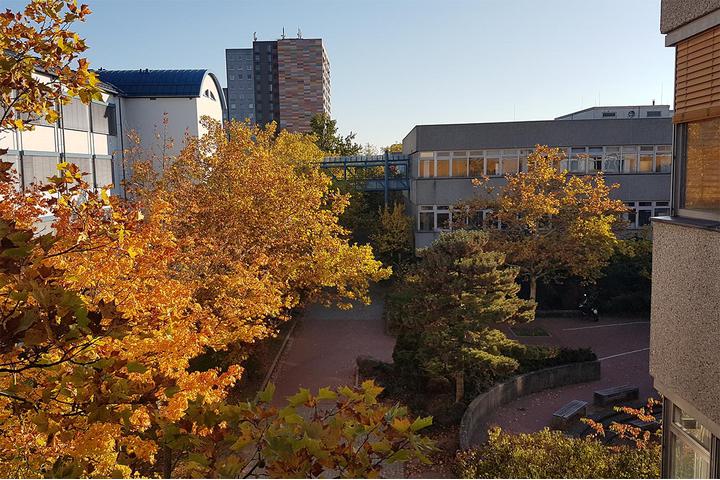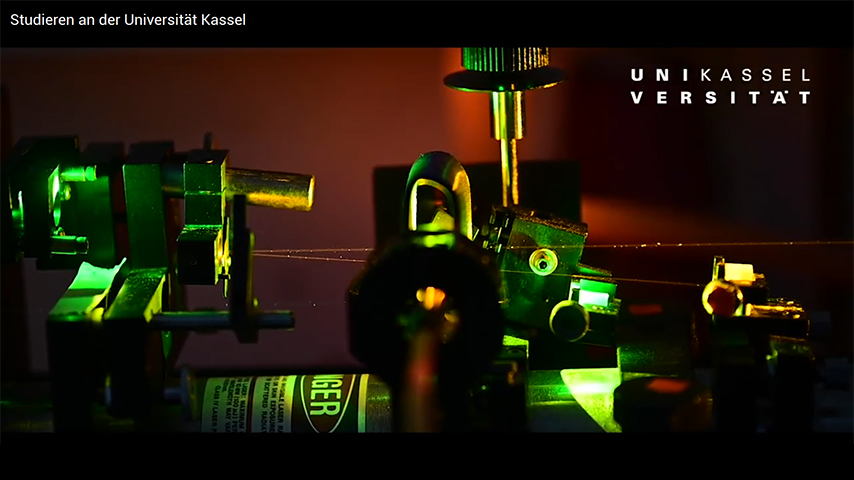Master of Science in Physics, Universität Kassel
Master of Science in Physics
The interaction between light and matter, quantum dynamics and control, nanostructures, laboratory astrophysics, magnetic layers and surface physics are the main research topics at the Institute of Physics at the University of Kassel. In our Master’ Programme in Physics, you will have the opportunity to work with internationally renowned scientists on highly topical issues in basic and applied research.
A special research area dealing with “Extreme Light for the Analysis and Control of Molecular Chirality“ (ELCH) gives you the chance to use the most advanced tools in experimental and theoretical atomic and molecular physics, as well as in optics and quantum optics (AMO) in the gas phase to control and manipulate chirality at the single molecule level. In laboratory astrophysics, you can use precision spectroscopy to study exotic molecules and clusters that otherwise only exist in interstellar space and compare your laboratory readings with astronomical observations to detect previously unidentified molecules. In technical physics, for example, you analyse semiconductor nanostructures and nanophotonic components for optical communication and quantum information processing and optimise them using semiconductor quantum dots. At the Centre for Interdisciplinary Nanostructure Science and Technology (CINSaT), you can work on interdisciplinary research issues from the nanostructure sciences at the interface between physics, chemistry, biology and the engineering sciences.
These and other research topics in the University of Kassel’s Master of Physics Programme will prepare you for a scientific career and research-related work in future industrial projects. We offer you fascinating experiments in our own laboratory and elaborate modelling in theoretical physics, both of them in a multinational research team environment with an intensive exchange of ideas – ideal conditions for a subsequent doctorate or entry into the profession.
As a precondition, you should have completed a bachelor's degree in physics and want to work in research. Then the Institute of Physics at the University of Kassel is the right place for you.
Video
Links
Ort
Bilder
Forschungsprofil Fachbereich/Institut
|
